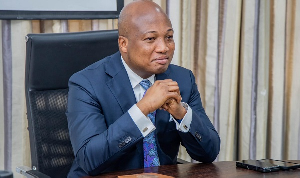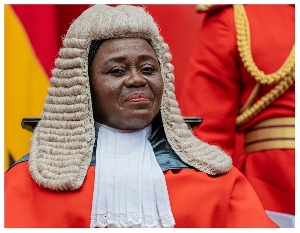Despite Decision Day having come and gone, the Heavily Indebted Poor Countries Initiative (HIPC) remains a highly contentious issue. The World Bank's Country Director for Ghana, Peter Harrold, was grilled over the programme yesterday on the second and final day of the UN workshop on Financing for Development.
The HIPC decision was approved this week as expected by the IMF and the World Bank, and will mean that, in effect, $3.7 billion of Ghana's $6 billion external debt will be wiped clean over a period of twenty years. Over the next year, this will result in $100 million being made available, 20% of which will go to reduce the national debt yet further, and 80% of which will be used to fund Ghana's Poverty Reduction Strategy.
However, several prominent bankers and financiers voiced their unhappiness with the HIPC status that has been bestowed upon it, because they believe it serves only to reinforce the stereotypical view of Africa as dependent on Western handouts and aid.
Mr. Harrold defended the initiative, though, describing such views as "nonsense".
"If we had called it the Debt Reduction Initiative for Africa, I don't think we would have had any of these problems," he said, referring to the slightly thoughtless title of the scheme. "Ghana is going to benefit from a reduction in debt of $3.7 billion," he continued. "Now, is that going to adversely affect Ghana's credit rating in the world? No."
Mr. Harrold had joined the debate after Mrs. Angela Farhat, representing the Ministry of Economic Planning, had described how the HIPC funds would be used almost entirely for poverty reduction schemes which have been put together by the government, with no outside interference. This pleased the assembled crowd of private bankers and investors little, though, who pointed out that since Ghana could and would have been able to pay its debt, and has never missed a payment before, labeling it a HIPC country is a step back rather than a step forward.
General News of Wednesday, 27 February 2002
Source: Accra Mail
World Bank Defends HIPC
Entertainment











